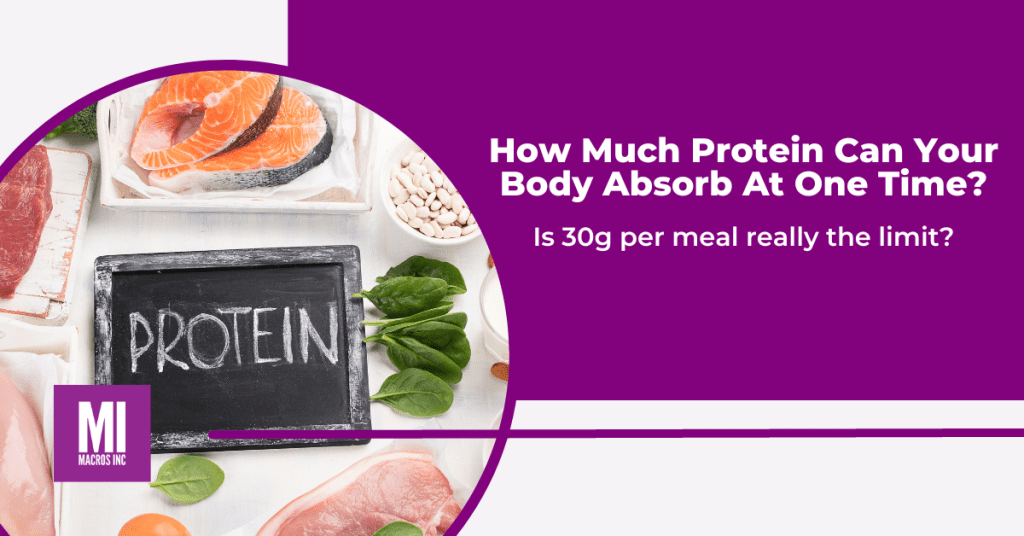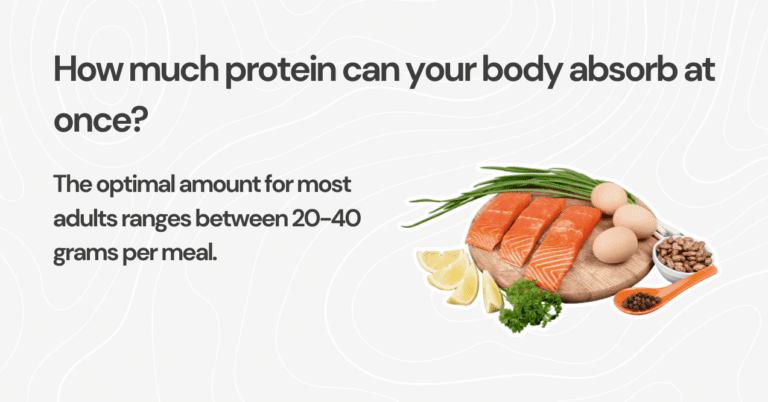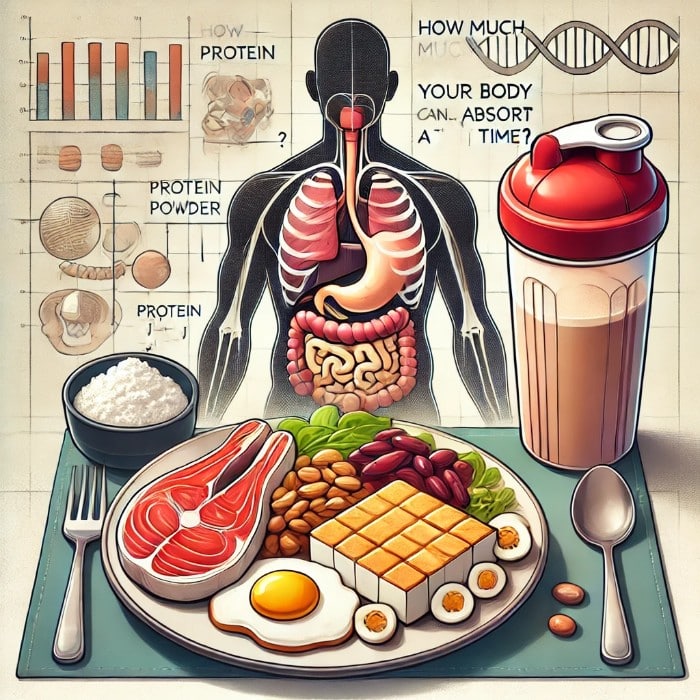How Much Can Your Body Absorb Protein At One Time

For fitness enthusiasts and health-conscious individuals, the question of how much protein the body can absorb at once is a recurring and often debated topic. The long-held belief that there's a strict limit to protein absorption per meal is now being challenged by emerging research, leading to a more nuanced understanding of protein utilization.
This article explores the current scientific understanding of protein absorption, examining the factors influencing protein uptake and its implications for dietary strategies and muscle growth. Understanding this information is crucial for optimizing nutrition plans for athletes, individuals aiming to build muscle, and those seeking to improve their overall health.
The Myth of the Single-Meal Protein Limit
The idea that the body can only absorb a limited amount of protein, often cited as 20-30 grams per meal, stems from earlier studies focusing on protein synthesis. This led to the common recommendation to space protein intake throughout the day to maximize muscle protein synthesis (MPS), the process by which muscles rebuild and grow.
However, more recent research suggests that this "anabolic ceiling" may be less rigid than previously thought. A comprehensive review published in the Journal of the International Society of Sports Nutrition indicates that the body's capacity to process protein is influenced by several factors, including the total amount of lean body mass, activity level, and the type of protein consumed.
Key Factors Influencing Protein Absorption
Several factors can influence the body's capacity to absorb and utilize protein. These include the type of protein, the individual's activity level, and overall caloric intake.
Protein Type: Different protein sources have varying digestion rates. Whey protein, for instance, is rapidly absorbed, while casein protein digests more slowly, providing a sustained release of amino acids.
Activity Level: Individuals engaged in regular exercise, particularly resistance training, often require higher protein intake and may be able to utilize larger amounts of protein per meal to support muscle recovery and growth. The American College of Sports Medicine recommends 1.2-2.0 grams of protein per kilogram of body weight for athletes.
Caloric Intake: When consuming a balanced meal with carbohydrates and fats alongside protein, the digestion process slows down, potentially allowing for a greater absorption of amino acids over a longer period. Consuming protein in a calorie deficit may also impact how the body utilizes protein.
What Does the Research Say?
Studies have shown that consuming larger protein meals doesn't necessarily lead to increased protein oxidation or wastage, as previously believed. Instead, the body appears to adapt and utilize the available amino acids for various processes, including muscle protein synthesis, tissue repair, and the production of enzymes and hormones.
One study published in the American Journal of Clinical Nutrition examined the effects of consuming a large protein meal (70-100 grams) in resistance-trained individuals. The results indicated that while MPS might not increase linearly with higher protein intake, the overall protein balance remained positive, suggesting that the body effectively utilized the consumed protein.
Another key finding is that the timing of protein intake may be less critical than previously thought, as long as adequate protein is consumed throughout the day. A meta-analysis of several studies indicated that the total daily protein intake is a more significant determinant of muscle growth than the distribution of protein across meals.
"The focus should be on meeting your total daily protein needs rather than obsessing over the amount consumed in each individual meal," explains Dr. Emily Carter, a registered dietitian specializing in sports nutrition.
Practical Implications for Diet
The evolving understanding of protein absorption has several practical implications for dietary strategies. Individuals should prioritize meeting their daily protein requirements based on their activity level and body composition goals.
Rather than rigidly adhering to a specific protein limit per meal, it may be more beneficial to focus on consuming a variety of protein sources throughout the day and ensuring adequate overall caloric intake to support muscle growth and repair. Consider incorporating both fast-digesting and slow-digesting protein sources to optimize amino acid availability.
Furthermore, individual responses to protein intake can vary. Experimenting with different protein intake strategies and monitoring muscle growth, recovery, and overall health can help optimize dietary plans.
Conclusion
The notion of a strict protein absorption limit per meal appears to be an oversimplification. While the body's ability to utilize protein is influenced by various factors, including protein type, activity level, and overall caloric intake, the emphasis should be on meeting daily protein requirements rather than rigidly restricting protein intake per meal.
The key takeaway is to focus on optimizing total daily protein intake to support individual goals, whether it's building muscle, improving athletic performance, or maintaining overall health. Continuing research in this area will undoubtedly provide further insights into the complex relationship between protein intake and the body's ability to utilize it effectively.


















